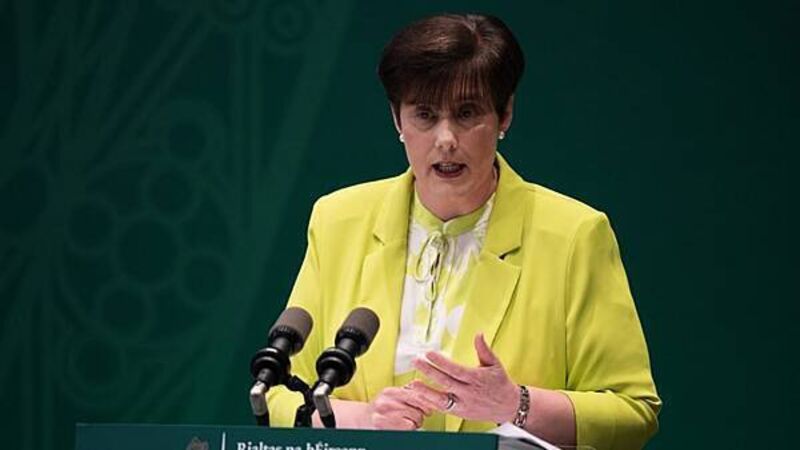Minister asks Tusla to provide clearer definition of missing children in care

By Gráinne Ní Aodha, PA
Minister for Children Norma Foley has said she is working with Tusla to provide a “clearer” definition of children in care who go missing.
She was responding after the chief executive of Tusla Kate Duggan, said several children went missing from the agency’s care every day.
Ms Duggan told a committee on Thursday that children in care might leave school or be on a recreational trip, and “they bolted and ran”. She said the agency then worked with gardai to locate the children “as quickly as possible”.
Asked about the comments, Ms Foley said she had discussed the issue of how many children went missing from State care, and how they were reported, with Ms Duggan and Tusla’s board of management.

“Any child that is absent for 15 minutes is regarded as a child that has gone missing,” she said at Government Buildings in Dublin.
“So they are reported as gone missing if they don’t return to a point that they’re meant to be at within 15 minutes.
“Many of those children return. Obviously, if it’s for a longer period, An Garda Siochana are consulted.”
She said: “There’s two cohorts of children (who go missing), there are children and young people – because they’re generally young people, 16-17 years of age – who present seeking international protection.
“Many of them indicate at the outset that it is not their intention to remain here, it is their intention to move on, but they are still listed as missing.
I am engaging for Tusla to give a clearer definition and a clearer understanding, so that I would have a clear understanding, the wider public would have a clear understanding, of how the reporting system works
“And then there are children and young people in mainstream. So I can say that the children in mainstream, all of those children were returned to 2024, for example.
“But I have, and I am engaging for Tusla to give a clearer definition and a clearer understanding, so that I would have a clear understanding, the wider public would have a clear understanding, of how the reporting system works, in terms of the 15-minute period, in terms of a greater period, in terms of young people who actually say at the outset it is our intention to move to another country, and that we would have greater oversight of all of that information, so that there would be clarity around what we mean when we say ‘children are not present’ or ‘young people are not present’.”
She also said she would bring forward legislation to put the National Review Panel (NRP), which reviews child deaths and serious incidents, on a statutory footing.
She said this would be done before the Dail concluded for the Christmas break.
“It will put the National Review Panel on a statutory footing, and second, it will introduce the concept of duty to co-operate among State agencies and organisations, (on the) sharing of information in relation to a child who might be in the care of the organisation,” she said.
“Two very significant advances that we will be making under that and I will be bringing that to Cabinet before the conclusion of this (Dáil) term.”
Dr Helen Buckley, chairwoman of the NRP, said previously that their process would benefit from being on a statutory footing.









